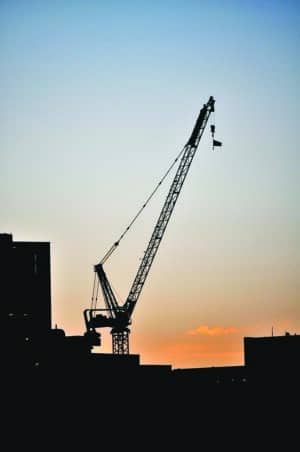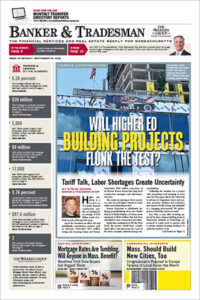
While sales of condos have fallen amid a dire shortage of listings, prices continue to set new records, both in Boston and across the metro market. iStock photo
After falling last year, construction of new homes and apartments rebounded across Massachusetts during the first four months of the year, federal Census Bureau numbers show. That’s in contrast to housing starts nationally, which rallied during the second half of last year before starting to drop again this year.
The numbers for the state’s capital and economic engine, while still far from robust, are also improving.
City officials issued building permits for 653 new housing units, half of them market rate, in the first four months of 2023. So far this year, City Hall has issued 830 permits for new housing units. Three-quarters of them are for market-rate apartments and condominiums, so that’s certainly an improvement, city housing officials say.
But that’s still less than half of the nearly 1,800 apartments, homes and condos developers started to work on during the first four months of 2022 – although some of those projects had been held up during the pandemic shutdown. Boston officials also issued building permits for more than 1,000 units in the first three months of 2020, the year of Covid, with all construction shut down that year in April as part of the state and national pandemic restrictions.
Building Costs Remain a Burden
The number of housing permits issued across Massachusetts are also on the rise.
Developers started work – or at least prepared to start to work – on 4,423 new units statewide during the first four months of the year, according to federal Census Bureau numbers. That represented an increase of 16 percent, with more than 700 additional apartments and condos driving the uptick.
Still, it’s worth asking why the housing numbers in Boston are stuck at very low levels.
It is certainly not demand. While sales of condos have fallen amid a dire shortage of listings, prices continue to set new records, both in Boston and across the metro market.
There were 1,076 condo sales in the Greater Boston market in March, the most recent month for which data is available, down from 1,099 sales in March 2023, marking a 2.1 percent decrease on a year-over-year basis. The median condo price increased 9.4 percent on the same basis to $640,000, up from $585,000 a year earlier, according to analysis from The Warren Group, publisher of Banker & Tradesman. The Warren Group defines the Greater Boston market as an area encompassing over 100 communities within the Interstate 495 corridor.
The big increase in interest rates is a major culprit, but some developers in cities and suburbs around Boston, and in markets across the country, are finding ways to move forward.
It’s a touchy subject. Developers depend upon local government for permits and approvals and are often reluctant to discuss an issue that could be construed as critical of elected leaders.
That’s been the case in Boston for decades, where power is concentrated in the mayor’s hands and no one wants to cross whomever is in office, whether it’s Michelle Wu today or the late Thomas M. Menino more than a decade ago.

Scott Van Voorhis
But privately, developers with plans for new housing for which they can’t nail down financing will point the finger at more than just interest rates.
It’s the overall cost of building in Boston, which is headed to a new and even more expensive level with tough new energy efficiency requirements and the mayor’s move last November to increase affordable housing requirements.
Eventually developers will find a way to start work again on new residential projects in Boston. But the danger is that the recovery may take longer, and be far weaker than it should be, due to the regulatory burdens City Hall has heaped on builders.
And for a city with a chronic, long-standing shortage of housing, from apartments to condos and townhomes, that’s bad news.
Scott Van Voorhis is Banker & Tradesman’s columnist; opinions expressed are his own. He may be reached at sbvanvoorhis@hotmail.com.




